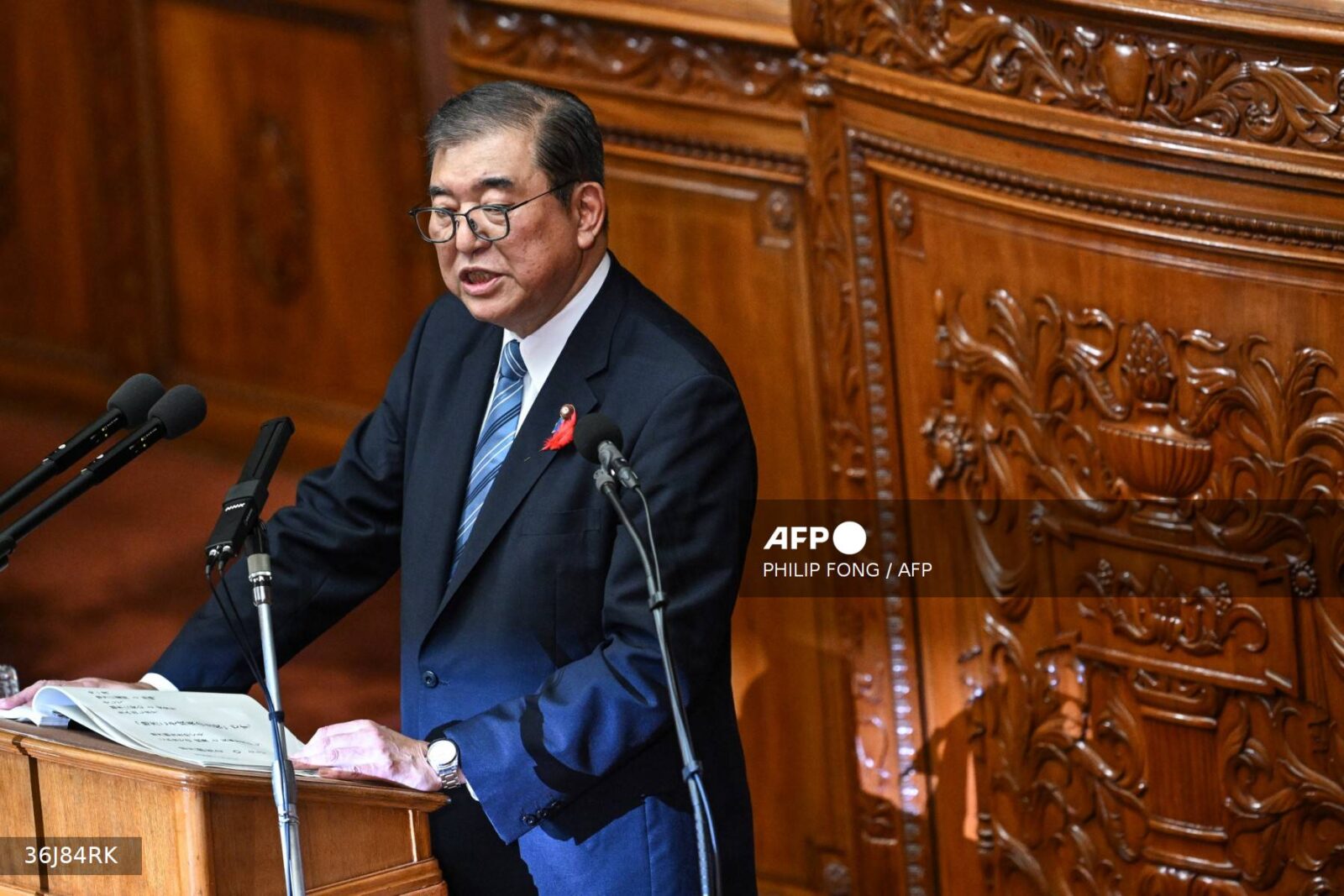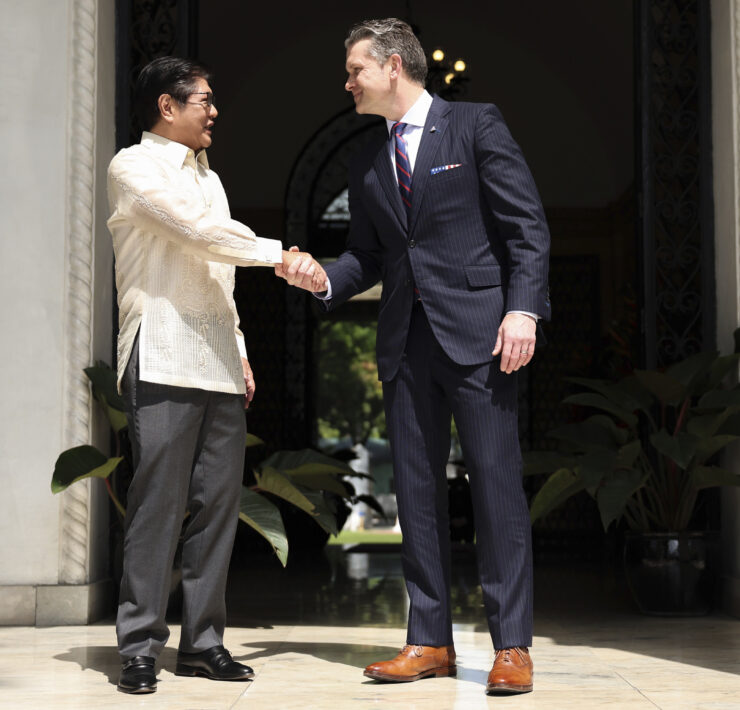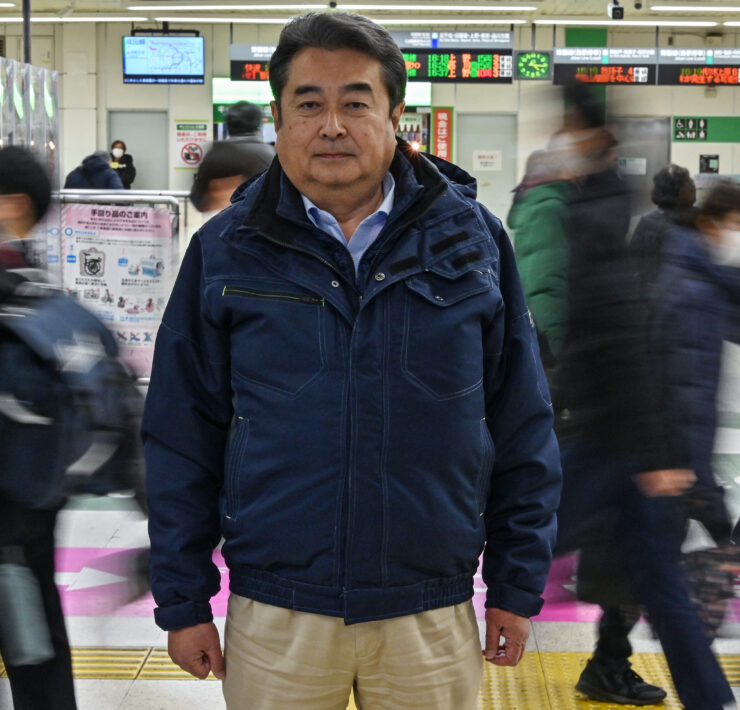Japan PM warns ‘today’s Ukraine could be tomorrow’s East Asia’

Tokyo–Japan’s new Prime Minister Shigeru Ishiba warned in his first policy speech Friday that “today’s Ukraine could be tomorrow’s East Asia,” saying that the world is becoming ever more divided.
The 67-year-old former defense minister, who took office this week, also dubbed the country’s low birth rate a “quiet emergency.”
Ishiba made no direct reference to China, but Japan’s relations with its neighbors have deteriorated in recent years as Beijing asserts its military presence around disputed territories in the region.
For Japan, the United States and other allies, China’s claims over democratic Taiwan are of particular concern. Beijing has never renounced the use of force to bring the self-ruled island under its control.
“Many fear that today’s Ukraine could be tomorrow’s East Asia. Why did deterrence not work in Ukraine?” Ishiba told parliament.
“Combined with the situation in the Middle East, the international community is becoming increasingly divided and confrontational.”
Japan has also irked China with plans for a major increase in defense spending and by boosting security ties with the United States and other allies including the Philippines and South Korea.
In August, a Chinese military aircraft staged the first confirmed incursion by China into Japanese airspace, followed weeks later by a Japanese warship sailing through the Taiwan Strait for the first time.
Ishiba has backed the creation of a regional military alliance along the lines of NATO, saying on Tuesday that the security environment in Asia was “the most severe since the end of World War II.”
Falling population
Japan, like many developed countries, is facing a looming demographic crisis as its population ages and the birth rate stays stubbornly low.
The country has the world’s oldest population after tiny Monaco, according to the World Bank.
Ishiba called the situation a “quiet emergency” on Friday, adding the government would promote measures to support families such as flexible working hours.
Previous prime minister Fumio Kishida was unpopular with voters because of a string of scandals and inflation squeezing earnings in the world’s fourth-biggest economy.
Ishiba — who pledged Friday to “ensure that Japan’s economy emerges from deflation” — wants to boost incomes through a new monetary stimulus package as well as support for local governments and low-income households.
Within this decade, he said he wants to hike the average national minimum wage to 1,500 yen ($10.20) per hour, up nearly 43 percent from the current 1,050 yen.
The yen surged last Friday after the Liberal Democratic Party (LDP) voted Ishiba its leader, after he had broadly backed the Bank of Japan’s exit from its ultra-loose policies.
But Ishiba said Wednesday he did not think the environment was right for further interest rate hikes — sending the Japanese currency south again.
On Friday afternoon, the yen stood at 146.02 against the dollar, having slightly recovered from levels past 147 in recent days.
Succession
Ishiba has said he intends to call a general election for October 27.
Until then, “we expect the policy focus to be centered on shoring up support for the LDP,” partly by “advancing popular policies such as fiscal expenditures,” Daiju Aoki of UBS SuMi TRUST Wealth Management said.
“Additionally, the absence of a visible growth strategy from Ishiba’s administration is a risk,” Aoki said.
On Friday, Ishiba also weighed in on the dearth of eligible male heirs to the imperial throne.
Male-only succession rules mean the royal family is facing extinction, with only one young heir: Emperor Naruhito’s 18-year-old nephew Prince Hisahito.
Royal women must leave the family when they wed a commoner — as in 2021 when former princess Mako Komuro married her university sweetheart.
Lawmakers have already held some debate on a possible relaxation of the strict succession rules, and a recent Kyodo News poll found 90 percent public support for female succession.
“Stabilizing the number of members of the imperial family is a particularly urgent issue,” Ishiba said, calling for active debate on the issue.
AFP is one of the world's three major news agencies, and the only European one. Its mission is to provide rapid, comprehensive, impartial and verified coverage of the news and issues that shape our daily lives.





















